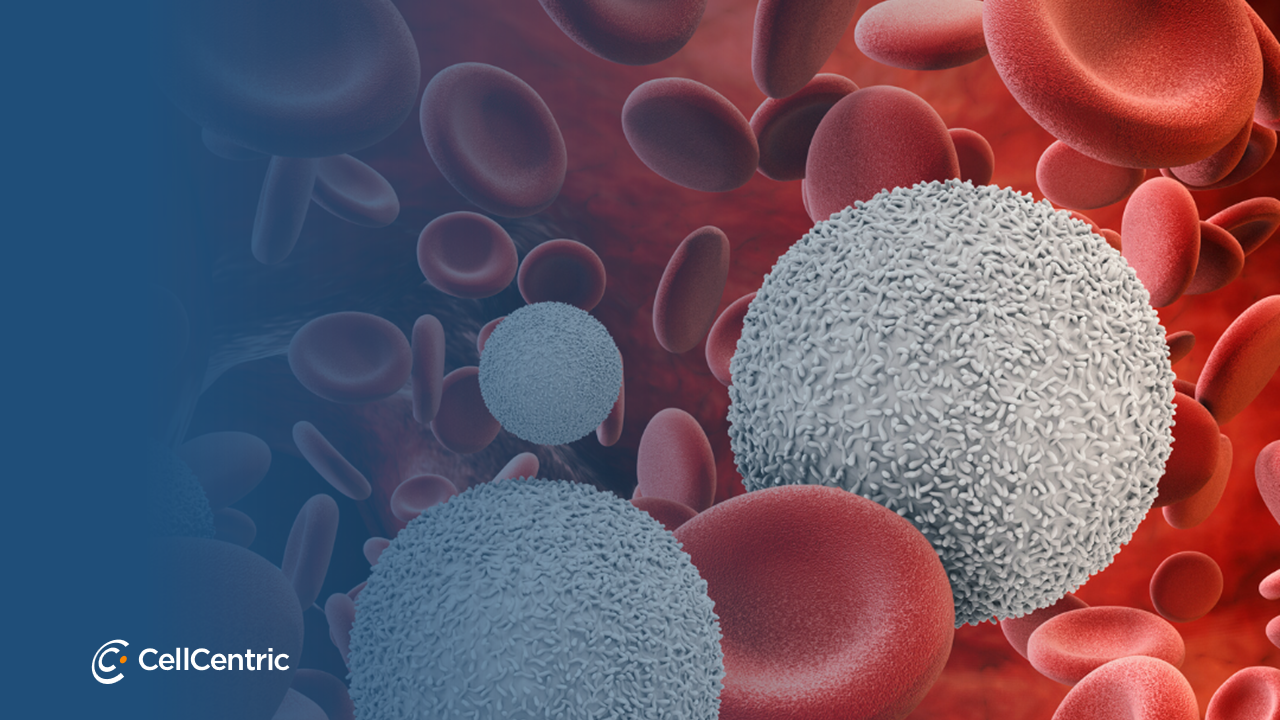- Inobrodib is a pioneering drug targeting twin tumour drivers p300/CBP, providing a new way to treat specific cancers
- Objective responses have been observed in multiple settings, including as monotherapy in relapsed refractory multiple myeloma
- ASH is the annual flagship scientific and clinical haematology meeting which is taking place in New Orleans on 9-13 December 2022
Cambridge, UK, November 4th, 2022 – CellCentric, a privately owned, clinical stage biotechnology company pioneering small molecule inhibition of p300/CBP to treat cancer, today announces that the Chief Investigator of its haematological malignancies programme, Professor Tim Somervaille, will be presenting compelling pre-clinical and early phase clinical activity data for inobrodib (CCS1477) at the American Society of Haematology (ASH) Annual Meeting and Exposition 2022, in New Orleans on the 9-13th December.
Presentation Details:
Potent Pre-Clinical and Early Phase Clinical Activity of EP300/CBP Bromodomain Inhibitor CCS1477 in Multiple Myeloma
Session Name: 651. Multiple Myeloma and Plasma Cell Dyscrasias: Basic and Translational
Session Date, Time: Saturday, December 10, 2022, 4:00 PM
Room: Ernest N. Morial Convention Center, New Orleans Theater C
Publication Number: 349
CellCentric has developed a first-in-class small molecule inhibitor drug, inobrodib, that targets twin cancer gene regulators, p300 and CBP. An extensive Phase I clinical programme has been undertaken, and a recommended Phase II dose and schedule (RP2D) as monotherapy has been established. At the RP2D, this novel drug has been shown to be well tolerated long term, delivering objective responses in multiple specific settings as monotherapy, including in relapsed refractory multiple myeloma (MM), acute myeloid leukaemia (AML) and lymphomas.
Inhibiting p300/CBP impacts the expression of key cancer drivers including MYC, IRF4 and the androgen receptor (AR). MYC and IRF4 are particularly important in the progression of certain blood cancers. CellCentric has demonstrated that its pioneering drug, inobrodib, has a direct impact on these key oncogenes.
Inobrodib is formulated as a capsule, taken orally. Patients appreciate being able to take medicines themselves, at home, with less impact on routines and quality of life.
Andrew Hughes, CellCentric Board member and previous head of global clinical Phase I/II oncology at AstraZeneca, said: “It is fabulous to see the pre-clinical promise of targeting p300/CBP translate into the clinic and deliver meaningful results for people with cancer. Many first in class compounds fail to achieve long term tolerability, as well as delivering efficacy. Targeting the bromodomain of p300/CBP is proving to have been the right drug discovery strategy.”
Tim Somervaille, Professor of Haematological Oncology at Cancer Research UK Manchester Institute and The University of Manchester, Honorary Consultant Haematologist at The Christie NHS Foundation Trust and Chief Investigator of the multi-centre international inobrodib Haematological Malignancy study commented: “These initial data provide great promise for the potential clinical utility of inobrodib as monotherapy, to treat late stage multiple myeloma patients, who have few alternate choices. We are expanding our existing encouraging cohorts, and also testing inobrodib now in combination with existing standard of care agents.”
As well as testing in heavily pre-treated, relapsed refractory haematological malignancy patients, CellCentric also has a study evaluating inobrodib for solid tumours, including late-stage prostate cancer, known to be driven by MYC and AR. The Company continues to explore the drug both as monotherapy and in combination with existing agents, in these additional settings. These data will be reported separately.
-Ends-
For more information, please contact:
CellCentric
Will West
Chief Executive Officer
Email: [email protected]
Optimum Strategic Communications
Mary Clark, Eva Haas, Eleanor Cooper
Tel: +44 20 3922 0891
Email: [email protected]
About CellCentric
CellCentric is a research driven and patient-centric clinical stage, private biotechnology company pioneering small molecule inhibition of the twin proteins, p300/CBP. It is focused on the rapid development of inobrodib, a first-in-class small molecule p300/CBP inhibitor, which has the potential to benefit patients with many different cancer indications.
The Company was originally founded with Prof Azim Surani of the Gurdon Institute, University of Cambridge, one of the first people to report on the phenomenon of epigenetics. This is a heritable code separate from DNA, that controls which genes are used or not used. CellCentric has investigated over 50 epigenetic-related targets as new ways to treat disease, and specifically cancer. The company actively pursued multiple drug discovery programmes before prioritising p300/CBP inhibition and inobrodib. An earlier arginine methyl transferase programme was licenced to Takeda Pharmaceuticals.




